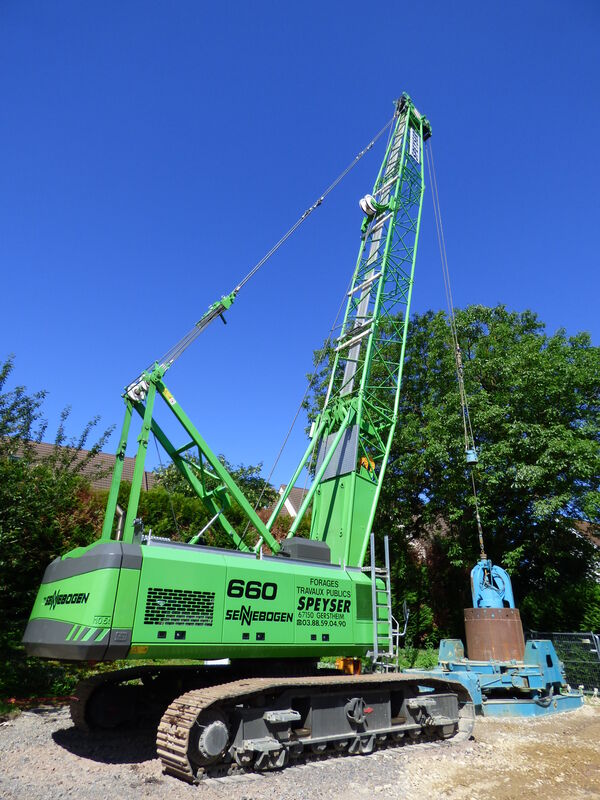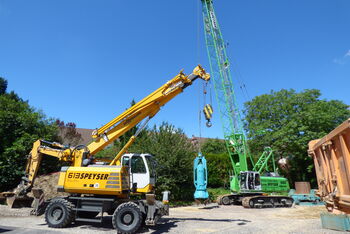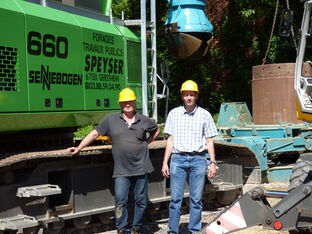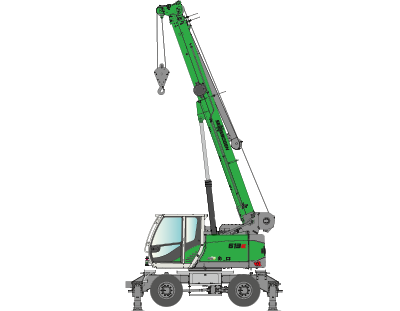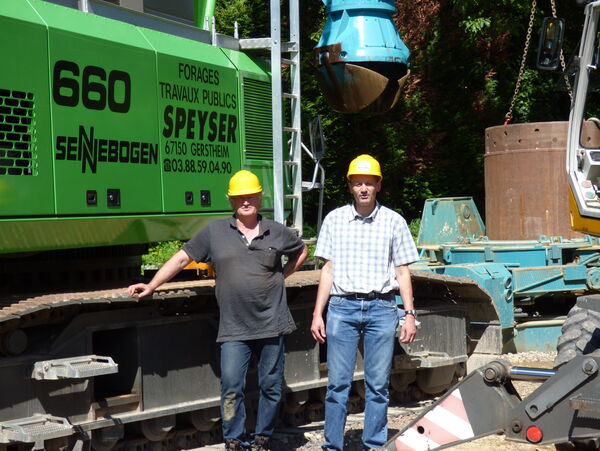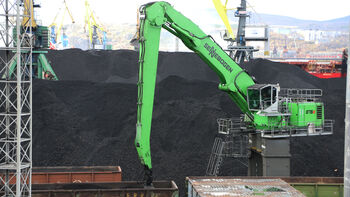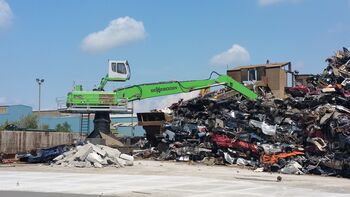Experts for special civil engineering: The family-owned company Speyser relies on SENNEBOGEN
Speyser, a family-run company from Bas-Rhin, France, is widely known for its expertise in special civil engineering and well construction. In Lingolsheim, France, wells are being dug with a SENNEBOGEN 660 duty cycle crane and 613 telescopic crane for a new industrial complex.
The construction site features a SENNEBOGEN 660 HD duty cycle crane with a casing machine for well construction as well as a compact 613 telescopic crane that is used as a service crane to transport and securely position the necessary components and materials. Speyser managing director Christophe Sprauel explains the procedure: "Several well shafts between 45 m and 65 m in depth are being dug with a rope grab, using the casing machine that is directly mounted on the duty cycle crane. The diameters are up to 900 mm." The well is to supply around 300 m³ of water per hour later on. The water will then flow down a second shaft again. Thus, a cooling circuit is operated.Digging depths of up to 120 m and pipe diameters up to 900 mm are easily possible with the SENNEBOGEN duty cycle crane. The entire equipment is driven by the powerful diesel engine and the 160 kN winches of the duty cycle crane.
Mobile telescopic crane for compact lifting operations
In addition to the duty cycle cranes in the machine park, Speyser uses its compact 613 mobile telescopic crane very successfully for work in narrow spaces. In this case, the 16 t telescopic crane pulls the piping elements out of the well drilling and loads them directly onto the waiting trucks. The compact 613 mobile crane shows its strengths particularly in tight circumstances. Recently, this made it possible to complete a well construction project in Strasbourg Hospital under extreme conditions with a ceiling height of only around 4 m. Thanks to the compact dimensions with a 2.55 m width and 3.14 m uppercarriage height, the mobile crane can be safely maneuvered even under these difficult conditions.
Machine in use
Press images
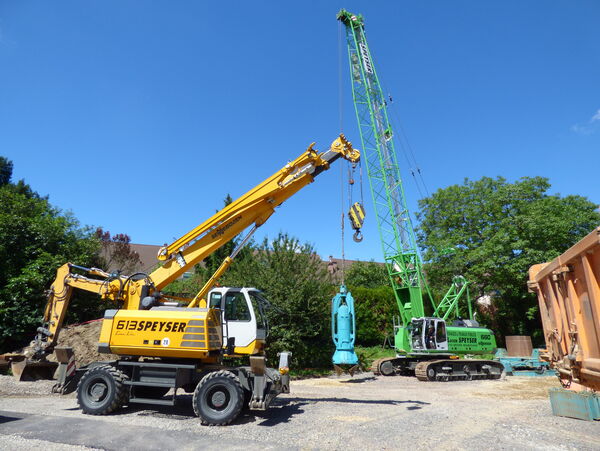
Press images
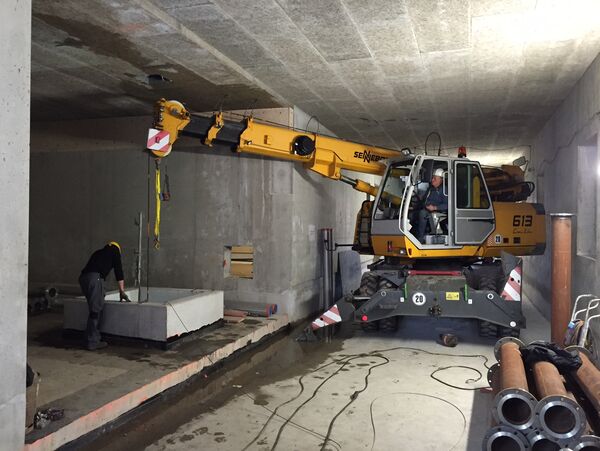
Press images
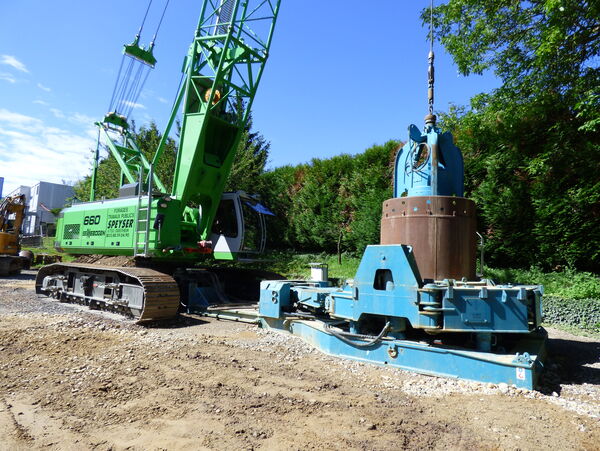
Press images
